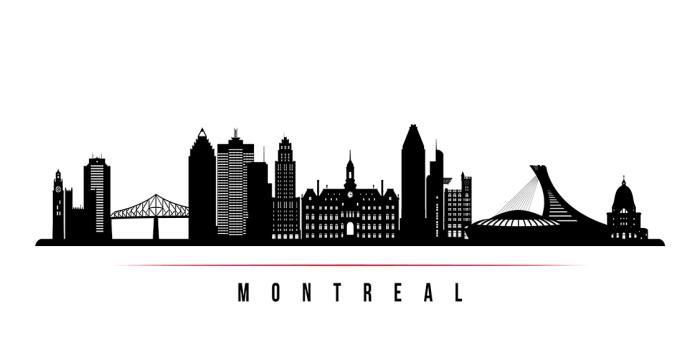How St Patrick’s Day became a cultural phenomenon
If you compare the size of our country to our global cultural reach, you’d be excused for your confusion. Because despite our compactness, everyone seems to hold a special place in their hearts for the people, places and traditions of our little emerald isle. In fact, in recent years, it has become tradition for many of the world’s iconic landmarks to turn green as the countries celebrate their Irish populations.
However, the modern St Patrick's Day celebrations across the world, characterised by green beer and shamrock hats, have very little to do with the historical figure from which the day gets its name.
Who was St Patrick?
St Patrick was a Roman citizen from Britain who was enslaved and taken to Ireland at just sixteen. After being released from captivity, St Patrick became a priest and returned to Ireland, where he spent much of his time converting the local pagans to Christianity. In fact, he was so successful at this that he was considered to possess some type of luck - which is why he is regarded by many as the Patron Saint of Luck.
His missionary work in Ireland continued for thirty years. After that, Patrick retired to County Down, where he is said to have lived to the ripe old age of 122, dying on March 17th, 461 AD. His burial site can be found in the Northern Irish town of Downpatrick.
It wasn't until years later, in the 17th century, that people began to mark his significance. Irish legend says that Saint Patrick used the shamrock as an educational symbol to explain the Holy Trinity to non-believers, which people adopted as an affordable way to pay respect.
What about the snakes?
St Patrick is said to have given a sermon from a hilltop that drove all the snakes from Ireland. However, no snakes are known to have existed in Ireland since the end of the ice age, which leads some scholars to think the driving away of the snakes may have been a metaphor for the conversion of the pagans.
One for your next pub quiz...
St. Patrick was actually born Maewyn Succat and changed his name to Patricius (or Patrick), derived from the Latin term for "father figure," after becoming a priest.
Why does the world love to celebrate St Patrick's Day?
The great dispersion
Due to the hardship Ireland historically faced, nearly 10 million people have emigrated from Ireland since the 1800s. America, Canada, and Australia are among some of the most popular destinations (this is why you tend to find high concentrations of Irish immigrants in these places). As a result, our people, history and culture has been exported on a global scale - which may explain the world's love of St Patrick's day. And for the Irish communities abroad, it’s also a perfect opportunity to come together and celebrate their heritage with pride (and a nice pint).
Our world-famous charm
Given that our people are rated as some of the friendliest in the world and that we're renowned for our roaring craic in some of the liveliest pubs, it's not surprising that much of the world turns green each year.
Our good-natured temperament as a nation is known and loved globally. Even for those who have never visited Ireland, an encounter with one of our many diasporas gives a taste of our world-famous warmth and charm.
Luck, friendliness and a healthy appetite for a good time - who wouldn't want to embrace the spirit of St Patrick's day?
How Ireland will be celebrating St Patrick's Day in 2023
With many of the travel restrictions from the last few years eased, just as St Patrick made his pilgrimage, so too can the diaspora of Northern Ireland return back to their homeland for the celebrations. Whether you're tracing the steps of Saint Patrick or watching one of the many parades – there's no shortage of Irish cheer on offer!
Belfast
In Belfast, celebrations will be taking place throughout the week. Trad Trail by Féile an Phobail takes place from the 10th - 19th in venues across the city featuring local musicians from all over the island.
There's a family-friendly concert featuring a host of talented Irish musicians in Custom House Square on the 16th, and on the day itself, crowds can celebrate together at the St Patrick's Day Parade by Beat Carnival. This year's theme, 'Voices of Belfast', celebrates Belfast's vibrant musical heritage. You can find out more about this year's events here.
Derry
Derry will host celebrations across the 17th and 18th of March, featuring traditional Irish music and dance in the Guildhall Square, a fairy-themed children's event at the Peace Garden, and a carnival of music, street theatre and storytelling in Craft Village. The festivities will culminate in Spring Carnival Parade through the city centre with the theme of 'Recycle and Renewal'. Find out more.
Armagh
Armagh's annual St Patrick's Festival returns with a program of music, art, theatre, film and dance to celebrate the legacy and history of Ireland's patron saint. The festival takes place from March 11th to 19th, featuring events such as the Vigil Walk and St Patrick's Eve Family Fun event and showcases traditional Irish music, food and entertainment for all ages. Find out more here.
Dublin
Meanwhile, in Dublin, revellers can enjoy the world-famous St. Patrick's Day Parade along with a jam-packed programme of events at Festival Quarter in the iconic National Museum of Ireland Collins Barracks.
And for those of you celebrating from afar, there are over 7,000 Irish-themed pubs scattered across the world, meaning you won't be short of somewhere to cultivate some traditional Irish craic as you raise a glass to St Patrick.
Happy Saint Patrick’s Day! Lá Fhéile Pádraig sona duit!








